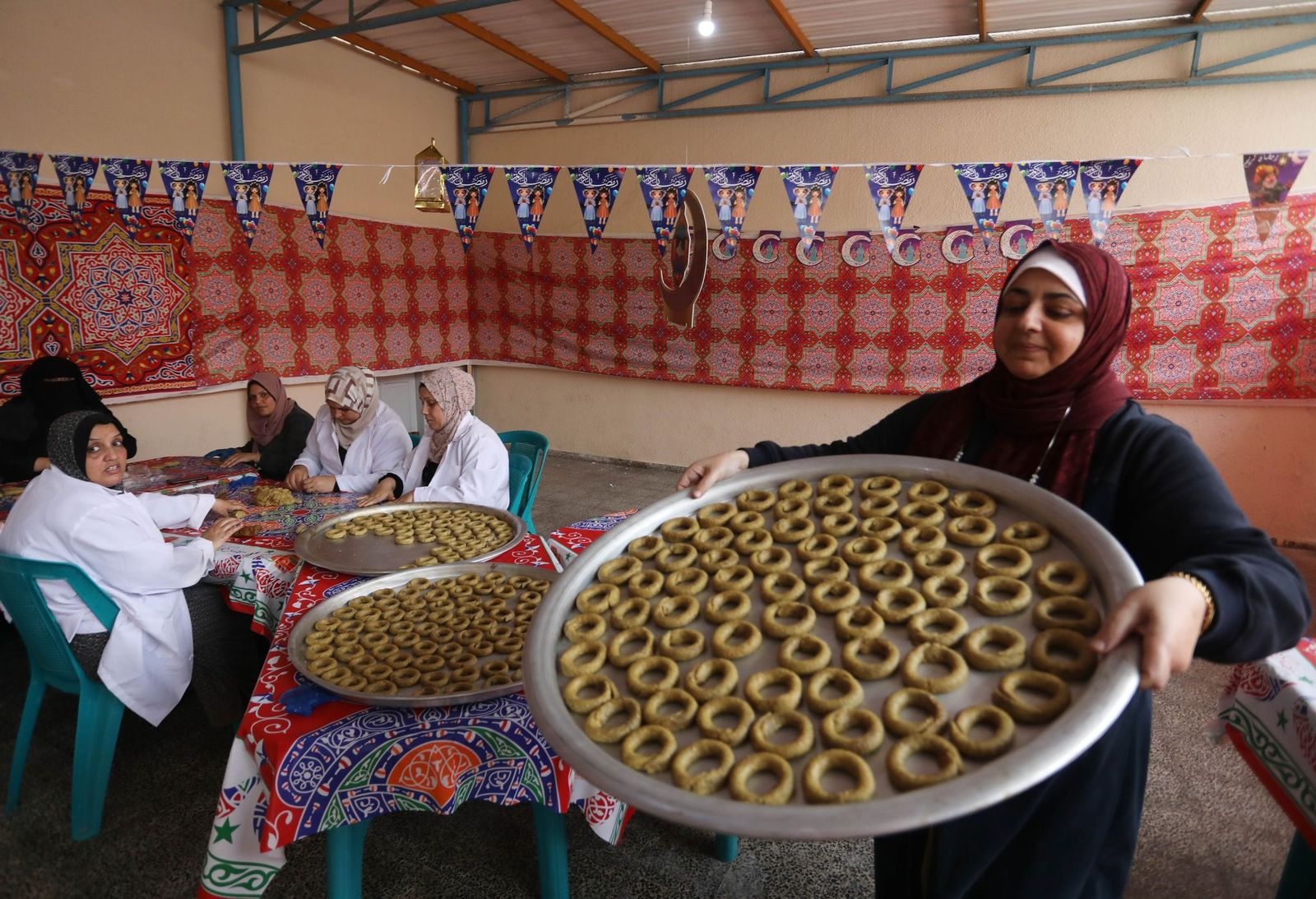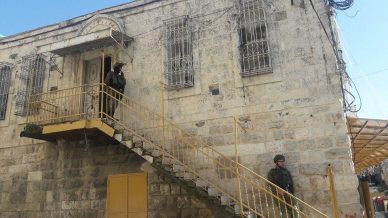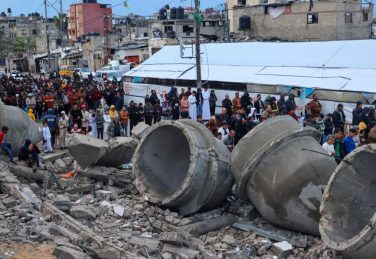Eid Al-Fitr “The festival of breaking the fast” in English is a joyous three-day celebration that marks the end of Ramadan beginning when the new crescent moon is observed.
It is a festive occasion which focuses on family generosity community and gratitude. The traditions of the 3-day celebration include sharing large meals visiting neighbors and relatives and taking walks with families to enjoy all of the outdoor entertainment on offer.
The run-up to Eid Al-Fitr
In the days leading up to Eid Al-Fitr the smell of popular Eid cookies Ka’ak and Ma’mol baking wafts throughout all towns and villages across the Gaza Strip. These Palestinian cookies are stuffed with date paste or nuts. They are served with tea or coffee in the first day of Eid.
It is traditional for the women of each extended family to gather and prepare these cookies for their family celebrations which are then distributed amongst family and to friends and neighbors.
Om Ahmad Abu Zaidah a mother of three from Shati’ refugee camp says “I can’t imagine Eid without the Ka’ak! My sisters-in-law and I gather and divide ourselves into groups some knead the dough others form it into ring shapes and others bake the Ka’ak.” She described the intensity of the flavors and the aromatic scent that can be smelled from long distances. “It is simply mouth-watering traditional food” she says.
Another common tradition taking place over the few days before the Eid is the crowded markets and the shops filled with people buying new clothes and different kinds of sweets and nuts. “We also gather to clean the family home” Om Ahmad says “even if it is already clean we turn it upside down and then decorate it with colorful ornaments.” It is also traditional for some households in Gaza to pay visits to cemeteries and recite Quran at the graveside for their late loved ones a day before the day of Eid distributing sweets and chocolates on their return home.
Eid traditional dishes
During Eid the Palestinians in Gaza eat Fiseikh “salted fish” smoked herring and Sumaghiyyeh a traditional Palestinian dish originating from Gaza City which receives its name from the spice sumac. People of Gaza believe that eating Fiseikh is essential and beneficial for their health after a month of fasting. Some believe that it detoxifies the stomach because it contains large amounts of salt. Despite the warning against the danger of eating a lot of this “salted fish” on the first day of Eid al-Fitr due to the health problems that it may cause Gazans insist on eating it as they only have it for one time in a year.
The children whose excitement for Eid Al-Fitr is palpable play on simple playsets like swings and roundabout that are placed on the public streets. “Our joy during Eid is when we see children beaming” Om Ahmad says. “They typically get most of everyone’s attention and we also allocate eidiyyah (money to be handed out) for children.”
On the first day of Eid after praying Eid prayer Palestinians return to their homes for breakfast which is usually Fiseikh or Sumagiyyah then parents brothers uncles and cousins make a visit to the families of all married daughters and aunties and other women in the families bringing gifts or money while enjoying the special hospitality for the Eid visitors consisting of the Ka’ak cookies nuts and Arabic coffee. The second day is traditionally when married daughters visit their families and share the meal with them. During Eid nights an abundance of fireworks light up the sky.
Despite all of the hardships repeated Israeli aggressions and the suffocating siege the Gaza Strip still preserves the Eid traditions and customs.
– Wafa Aludaini is a Gaza-based journalist and activist. She contributed this article to the Palestinian Information Center.














